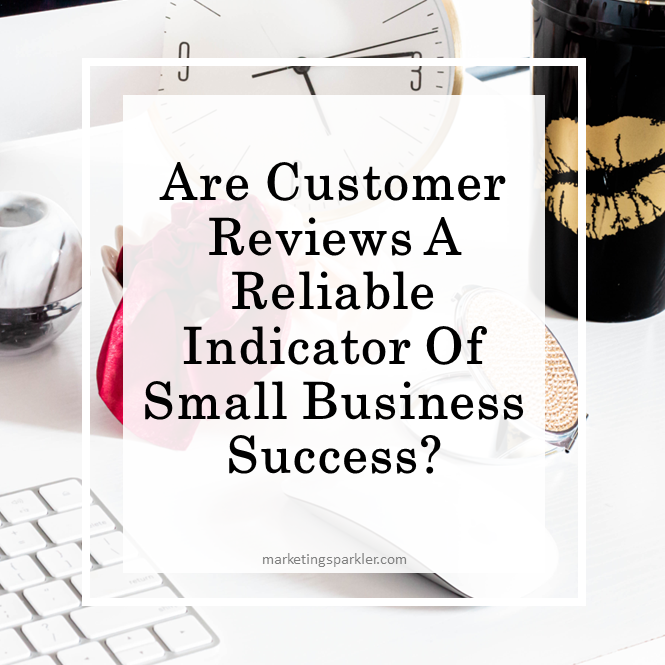Every company deals with customer reviews, and most try to learn from them. However, while many small businesses place an extreme amount of emphasis on them, they may be better off measuring their success against a different metric.
Are Customer Reviews a Reliable Indicator of Small-Business Success?
The Problem With Customer Reviews
Although Amazon has been reluctant to release the exact figures, it blocked over 200 million potentially fake customer reviews in 2020. In the same year, it received more than 520 million in total. By its admission, nearly 40% of all new submissions were illegitimate. Some usually slip through the cracks, so the actual number is likely higher.
As the largest e-commerce platform, Amazon has a vast amount of resources. Still, it routinely lets users submit fake feedback, skewing ratings. Even though small businesses deal with customer reviews on a much more minor scale, they are still a significant issue. Since the potential for fake complaints is so high, you are right to question whether they accurately indicate your success.
Are Reviews a Reliable Indicator of Success?
Typically, reviews are not a reliable indicator of success for small businesses because there are too many variables. Competitors and disgruntled customers can easily leave multiple fake reviews on your page. Even if the feedback is genuine, the ratio of positive to negative is often inaccurate because people tend to write about bad experiences more often.
Since most people read multiple reviews before making a purchase decision, they will likely come across others’ complaints and compliments. Numerous negative comments may not harm your company initially but can quickly become problematic. Potential customers who see them might feel incentivized to take their business elsewhere.
While it stands to reason that an overwhelming amount of negative or positive reviews is a meaningful indicator of a business’s success, that is not always the case. Sometimes, people review-bomb a company or leave false unfavorable comments. Alternatively, they write about illegitimate pleasant experiences to artificially inflate ratings.
For example, NatureWise made over $9.5 million hiring people to write fake five-star reviews. Its plan was only obvious because many were posted before the product was available. Ultimately, it had to turn over its profits to Vitamins Online — its direct competitor — because a court ruled its Amazon ratings were intentionally deceptive.
How Much Do Customer Reviews Matter?
Customer reviews may not determine your business’s success, but they still greatly matter. They provide insight into your practices and establishment, helping you to improve. Additionally, they offer a chance to increase customer retention and sales.
Negative feedback is extremely valuable to small-business owners. You should place some weight on it, considering it is a unique line of direct communication between you and your unhappy customers. Besides, although genuine reviews containing specific information are usually a reliable indicator of your success, more accurate performance indicators exist.
How Can Businesses Get Genuine Reviews?
Businesses can improve their online presence and directly address customer feedback to get more genuine reviews and filter out fake complaints.
1. Update Your Online Presence
Updating your online presence can help you get more genuine reviews and prevent fake ones. Consumers often read about other people’s experiences for clarification, so giving them an official resource is wise. They are likelier to trust your word over a random, disgruntled individual’s complaint.
Companies should post high-quality pictures and write detailed descriptions. You want to fully flesh out your pages so potential customers can view your business accurately. About nine in 10 consumers feel a brand’s image influences their purchasing decisions.
2. Encourage Feedback
Although businesses typically cannot offer rewards in exchange for reviews, they can still encourage people to leave them. You can ask your customers to write about their experience with you, increasing the chances for positive feedback.
3. Use Social Media
People often go to social media to air grievances because they can reach an incredibly large audience. When this happens, you cannot fix their problem like you could if they had left a standard review. Additionally, it increases the chance of a review-bombing situation.
Luckily, a strong social media presence can help you get ahead of these scenarios. It allows you to respond directly to people and resolve their issues before others see them. A public resolution can even help your business’s image.
4. Publicly Resolve Issues
A negative review sticks out to a small business with a limited customer base. If you resolve it publicly, you can refocus consumer attention on your positive business qualities. Ensure you craft a genuine message to maximize your chances of success.
A calm, professional message can improve someone’s impression of the brand if the complaint is legitimate. Even if it is fake, you still demonstrate your dedication to your customers and give them confidence in you. About 88% of people will ignore a negative review when they see a helpful response from the business.
5. Respond to Reviews
Many small businesses have a habit of replying only to negative customer reviews because many larger companies do. However, while they are just doing damage control, you are building your reputation. Responding to positive comments and encouraging others to leave their own is essential.
Measure Your Success
Customer reviews are not reliable because it is challenging to validate them. However, you can still view each compliment and complaint as genuine feedback and try to grow from it. At the very least, how you respond to them can improve your brand image and raise your reputation.
Ciao,
Miss Kemya


